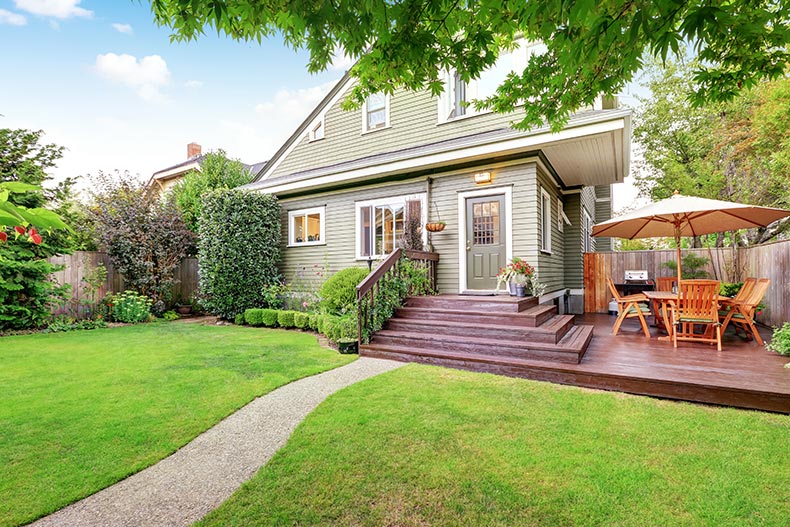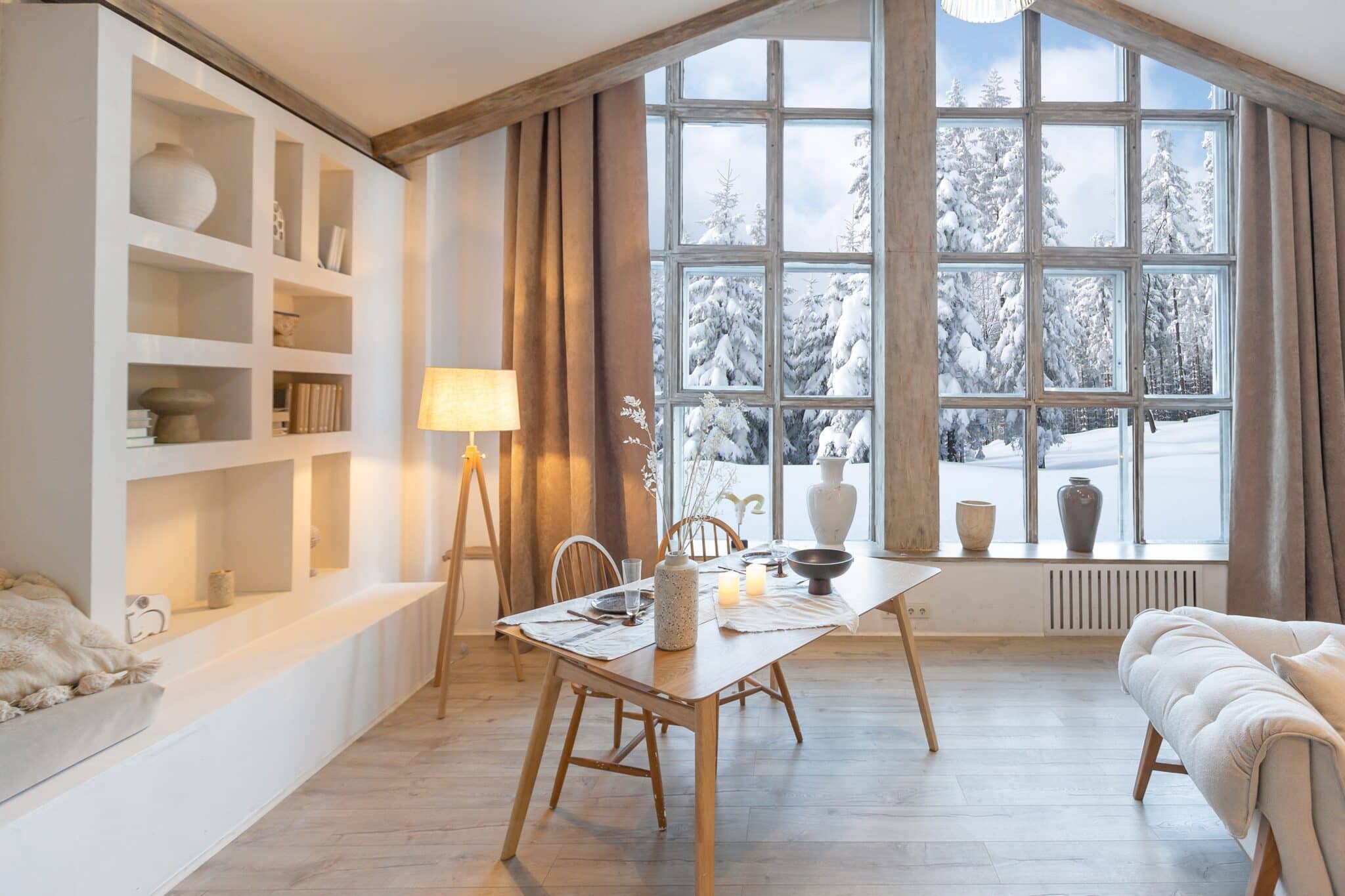10 minute read
Answer: Many restrictions in retirement communities benefit residents by preserving property values, providing a safe environment, and creating a cohesive aesthetic. If some community rules don’t fit your lifestyle, consider continuing your search for an active adult community that’s more compatible.
Where do you picture yourself retiring? For many retirees, the answer is a 55+ community. These communities come in many different sizes and styles, but they’re all designed to create a comfortable and convenient retirement lifestyle. For many retirement communities, a homeowners association (HOA) is a big part of creating and maintaining that lifestyle.
When you hear HOA, you might immediately think of rules and regulations. True, many retirement communities have HOA rules and regulations, but what does that mean for residents? What kind of rules? Why are they in place? How are they enforced?
Let’s learn about some of the common 55 and older community rules and regulations to help you picture moving into an active adult community.
Types of Restrictions in Retirement Communities

No two retirement communities are exactly alike. You might even be surprised about some aspects of 55+ community living, but some common restrictions include:
Property and Housing Restrictions
Retirement communities typically have rules regarding home modifications. You’ll likely need to check with the HOA to ensure any changes don’t violate the community’s architectural and aesthetic rules.
Some active adults like the idea of traveling and renting out their home while they’re away. However, a 55+ community may have limitations regarding renting and leasing property.
Age Restrictions
You may have heard of the 80/20 rule. Under the Housing for Older Persons Act (HOPA), a part of the Fair Housing Act, at least 80% of homes in a 55+ community must have at least one resident who is 55 years or older. This federal law means that any retirement community that advertises itself as 55+ will have age restrictions.
Communities may allow people younger than 55 to live there (such as a partner younger than 55 or grandchildren), but there will likely be limitations. If you plan to live with family members under the age of 55, be sure to examine the rules of any community you’re considering.
Social and Community Rules
Active adult communities also often have social and community rules to ensure residents can collectively enjoy their home and community amenities. Many communities have noise regulations that designate quiet hours. If you like to entertain and stay up late, the HOA will likely require you to keep the noise down.
If you’re an animal lover, be sure to check pet policies when you are researching retirement communities. Some HOAs restrict the type and number of pets you’re allowed to have.
Guest rules for 55+ communities can limit the number and frequency of guest visits, particularly guests under 55. If you frequently host your children or your grandchildren, make sure the rules won’t cause any conflict.
Financial Rules
Retirement community HOAs are often responsible for maintenance. In many cases, they’ll take care of your yard work and keep the shared spaces clean. Also, as a part of living in the community and enjoying that maintenance-light lifestyle, you’ll likely be required to pay a membership fee and/or HOA dues. Keep any financial rules in mind when you’re calculating your retirement budget.
Reasons Behind Restrictions

Learning about 55 and older community rules and regulations can be overwhelming. It’s important to remember that these rules have a purpose. They’re meant to benefit the people who live in the community.
Many HOA rules are put in place to preserve property values in the community. For example, there are often rules regarding the kind of alterations that can be made to a home. You may fall in love with one community and spend all your retirement years there. But if you decide to sell and move, a community that prioritizes property value will be a plus.
Also, you probably want your retirement years to feel secure and relaxed. Many 55+ communities have rules in place to ensure residents can enjoy a safe environment. For example, some HOAs may require that all guests be approved before they’re allowed to stay. If you want to prioritize safety, you can look for a gated 55+ community.
It’s up to you how you want to spend your time in retirement, but many 55+ communities cater to an active lifestyle. HOAs often maintain a wide array of amenities, one of the biggest benefits of living in a 55+ community. You can look for communities that have clubhouses that host hobby groups, social gatherings, and live entertainment. You can also look for communities with walking and biking paths, fitness centers, pools, and golf courses. Whatever amenities suit your lifestyle, you can probably find them in a 55+ community.
However, be sure to double-check what kind of rules and restrictions regulate the amenities. Do you need to pay any extra fees? Are there limitations on guest use of the amenities?
How Rules Are Enforced

Rules are of little use if they’re not enforced. When you move into a 55+ community with an HOA, you agree to abide by that community’s rules. Minor slip-ups or violations will likely lead to a friendly reminder and a timeline for compliance from your HOA.
However, repeated or major violations of the rules can have more serious consequences. If warnings aren’t sufficient, you may be subject to HOA fines. Also, community residents who allow fines to go unpaid for long enough may even find that the HOA places a lien on their home.
If you follow the rules, you can avoid these consequences. Also, if you think some community rules don’t fit your lifestyle, consider continuing your search for an active adult community more compatible with your retirement plans. Make sure to add restrictions and enforcement to your list of questions to ask about a 55+ community.
Pros and Cons of Restrictions

Rules that come with living in a 55+ community have both benefits and downsides. Carefully weigh the pros and cons of retirement community restrictions and your lifestyle aspirations before deciding where to live.
Some of the top advantages restrictions offer include:
A Sense of Community
Retirement communities can really live up to their name. Age restrictions and amenities designed for active adults can create a space where people in the same stage of life can come together and enjoy one another’s company. If you’re looking for that sense of community in retirement, these rules could be a major benefit.
Enhanced Safety and Security
A gated community also offers residents a safe and secure place to live. Additional rules around visitors can add to that security. These kinds of rules can be helpful for you and any loved ones who come to visit.
Maintaining Aesthetics
Many retirement community rules create a cohesive aesthetic. Beautifully manicured lawns, pristine exteriors, and a common theme among homes are often achieved when people follow a shared set of rules. If you want to enjoy your retirement years in a place that prioritizes aesthetics, you’ll likely enjoy the result of this type of HOA rule.
Also, it’s important to consider the potential downsides of living with 55+ community rules and regulations.
Some of the top disadvantages restrictions offer include:
Loss of Personal Freedom
55+ communities have restrictive covenants. These rules and regulations make living in these communities ideal for residents, but they do limit what you can and cannot do. Consider what that means for your views on personal freedoms. Will HOA rules clash with your lifestyle? Do you want the freedom to make major changes to your home? Do your views on pets and visitors match with a community’s rules? You might find that there are too many rules for your liking.
Potential for Conflicts
Community rules and restrictions also come with the potential for conflict. You may find that you and your neighbors disagree on the interpretation of the HOA’s rules. Or you might find yourself in conflict with members of the HOA. This is not a frequent occurrence, but it can happen.
Limitations on Guests
Many people want to enjoy their retirement years with friends and family. For some people that means traveling to see loved ones. For others, it means hosting. If you plan to have grandchildren, children, and friends stay at your home frequently, you might find that guest limitations and rules are a downside of living in a 55+ community.
Finding the Right Retirement Community for You

Finding the right retirement community can take time. It’s important to do your research before choosing a spot.
HOA rules and restrictions shouldn’t be a surprise. Before you settle down in a 55+ community, get to know the rules you’ll be living with in your new home. The community’s HOA board sets the rules. While you’re getting to know a community, request to see the community’s covenants, conditions, and restrictions (CC&Rs). Reading through this document can help you understand what will be expected of you if you decide to live there.
You also have the option of talking to other residents. There’s no better way to get to know a community than talking to the people who live there. Some 55+ communities even offer short-term rentals to potential buyers who want to test out the community culture before buying. Ask current residents about the rules. Do they find them challenging to follow? Do neighbors ever run into conflicts regarding the rules?
Once you have a clear picture of what life in a particular 55+ community looks like, do an honest assessment of your priorities and your lifestyle preferences. Do the community’s rules and restrictions align with your assessment? Are you willing to make any compromises, or do you need to move on in your search?
In addition to rules and regulations, you also have other considerations when searching for the right retirement community. Think about:
Your Preferred Home Style
Are you looking to downsize or spread out in retirement? Luckily, 55+ communities also offer a variety of home styles and sizes. You can find options with spacious single-family homes and communities with smaller condos and townhomes.
Your Budget
How much do you have budgeted for your new home and your retirement lifestyle? Retirement communities cater to nearly any budget. You can find large luxury homes and smaller, budget-conscious options. Remember to factor in HOA fees when considering how a community could potentially work with your budget.
Your Location
Where do you envision spending your retirement? Some people spend years daydreaming of escaping the cold weather and retiring somewhere where snow is a distant memory. Luckily, plenty of warm weather states have 55+ communities to explore.
Other people are more interested in moving closer to friends and family. Whether you’re looking for something more remote or something more urban, there are plenty of options. Knowing your top locations can help you narrow down your search.
Your Amenities
How do you want to spend your free time? Active adult communities come with a variety of amenities that cater to their residents’ lifestyles. Do you want to perfect your golf game? Catch up on your reading by the pool? Get back to an old hobby or discover a new one? Put together a wish list of the amenities you want and see which 55+ communities deliver.
55places Is Here to Help!
If you agree to move into a community with HOA rules, those rules are considered legally binding. If you have any concerns about what that means for you, you always have the option of seeking legal advice before you make any decisions.
Rules and restrictions have a purpose in 55+ communities. They help to shape the lifestyle and maintain a sense of community for residents. Ultimately, it’s up to you to make an informed decision. Do these rules fit with your lifestyle?
If you decide the 55+ community lifestyle is right for you, 55places.com is here to help you find the perfect active adult community!

Discover what’s next.
To learn more information or connect with a real estate expert, contact us today.








